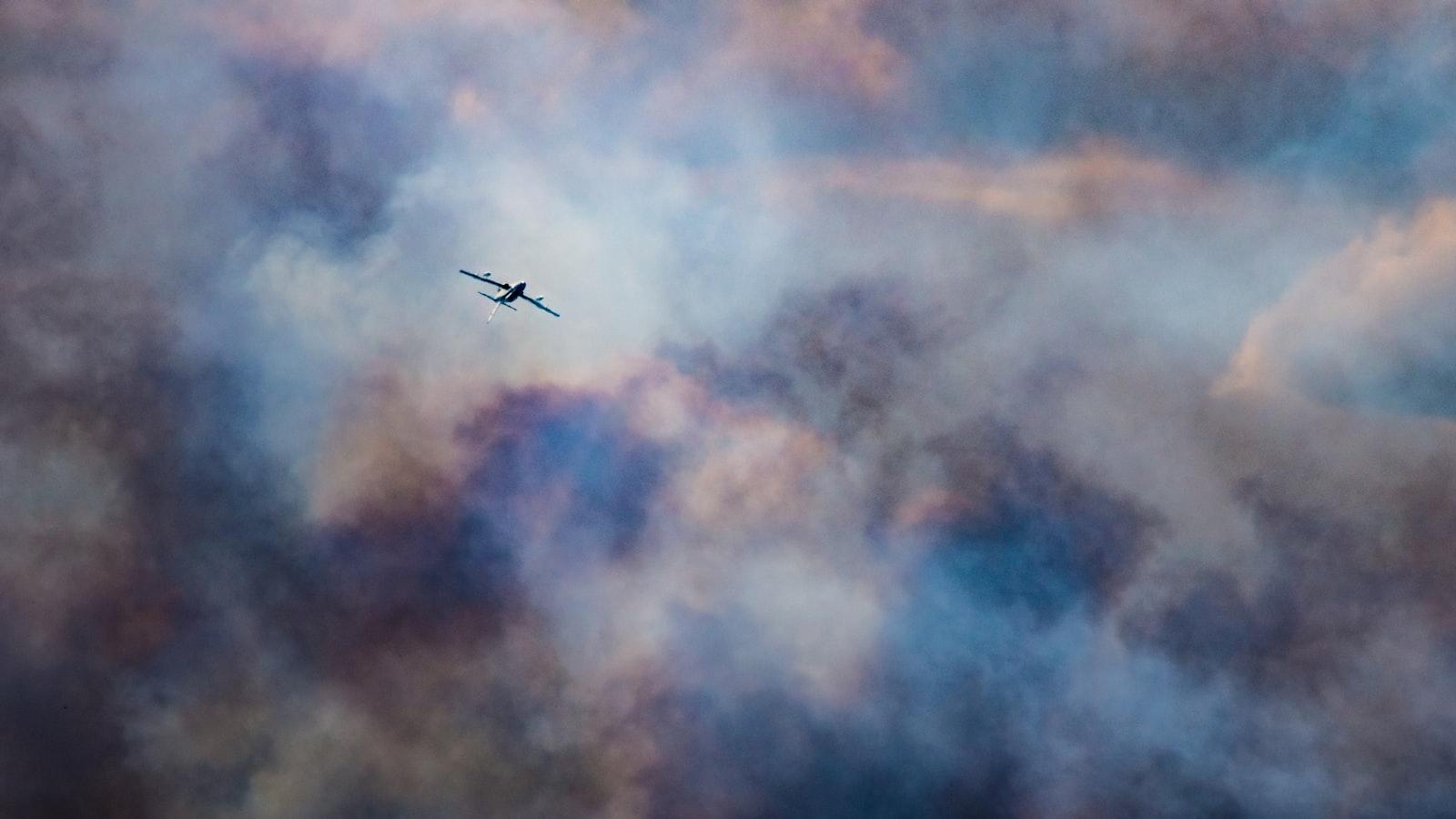Step outside and take a deep breath. We inhale life-giving oxygen, filling our lungs with the invisible elixir that sustains every fiber of our being. But what if every breath we take is slowly poisoning us? Welcome to the haunting realm of air pollution, a silent assailant jeopardizing the delicate balance between human health and the atmosphere we share. In this article, we embark on a journey of discovery, aiming to unearth the intricate connection between the air we breathe and the wellspring of our vitality. Unveiling the scientific mysteries that shroud this issue, we delve into our toxic reality to shed light on a topic that impacts us all. So, brace yourself as we traverse through the unseen corridors of our atmosphere, unraveling the shadowy ties between air pollution and our health.
The Impact of Air Pollution on Human Health: Unveiling the Hidden Dangers
Air pollution is a pressing issue that affects not only the environment, but also human health. The air we breathe is filled with a myriad of harmful pollutants, some of which are invisible to the naked eye. These pollutants can have a profound impact on our well-being, leading to a wide range of health problems.
- Respiratory Issues: Prolonged exposure to air pollution can significantly worsen existing respiratory conditions such as asthma and bronchitis. Fine particulate matter, commonly found in polluted air, can enter our lungs and cause inflammation, leading to difficulty breathing and increased susceptibility to respiratory infections.
- Cardiovascular Problems: The effects of air pollution extend beyond the respiratory system. Studies have shown a clear link between exposure to polluted air and an increased risk of cardiovascular diseases such as heart attacks and strokes. These pollutants can accelerate the development of conditions leading to plaque buildup in arteries, leading to compromised blood flow and potential heart-related complications.
- Impaired Lung Development: Children are particularly vulnerable to the detrimental effects of air pollution. Breathing in polluted air during their developmental years can impair their lung growth, increasing the risk of respiratory problems later in life. It is essential to protect young individuals from harmful pollutants to ensure their long-term health and well-being.
Air pollution is not limited to outdoor environments only. Indoor air quality is equally important, as we spend a significant portion of our time indoors. Common household pollutants such as cooking fumes, tobacco smoke, and volatile organic compounds (VOCs) can contribute to a wide array of health issues. These pollutants can aggravate existing respiratory conditions, contribute to the development of allergies, and even increase the risk of certain types of cancer.
| Health Problem | Contributing Factors |
| Asthma | Airborne pollutants, allergens |
| Lung Cancer | Tobacco smoke, radon, outdoor air pollution |
| Allergies | Pollen, dust mites, mold |
It is imperative that we take steps to mitigate air pollution to safeguard our health. By reducing our reliance on fossil fuels, promoting sustainable transportation, and implementing stricter regulations on industrial emissions, we can contribute to cleaner air and a healthier future for both ourselves and future generations.

Exploring the Relationship Between Air Quality and Respiratory Diseases
As we go about our daily lives, we often take for granted the air we breathe. However, recent studies have revealed a deep and concerning relationship between air pollution and respiratory diseases. The correlation between these two is not to be overlooked, as air quality significantly impacts our health and well-being.
Air pollution, particularly from fine particulate matter (PM2.5) and gases such as nitrogen dioxide and ozone, has been linked to a plethora of respiratory diseases. These include asthma, chronic obstructive pulmonary disease (COPD), lung cancer, and even respiratory infections. The harmful pollutants present in the air we breathe can irritate the respiratory system, causing inflammation and damage to lung tissues over time.
- Asthma: Children exposed to high levels of air pollution are more likely to develop asthma or experience worsening symptoms.
- COPD: Long-term exposure to air pollution leads to the development and progression of chronic bronchitis and emphysema, both forms of COPD.
- Lung Cancer: Air pollution, particularly from industrial emissions and car exhaust fumes, contains carcinogens that increase the risk of developing lung cancer.
Understanding the relationship between air quality and respiratory diseases is crucial in implementing effective preventive measures and policies. By promoting clean air initiatives, reducing vehicular emissions, and supporting environmentally friendly practices, we can protect ourselves and future generations from the detrimental effects of air pollution on respiratory health.
| Respiratory Disease | Causes | Symptoms |
|---|---|---|
| Asthma | Air pollution, allergens | Coughing, wheezing, shortness of breath |
| COPD | Tobacco smoke, air pollution | Chronic cough, difficulty breathing |
| Lung Cancer | Carcinogens in air pollution | Coughing, chest pain, weight loss |

Understanding the Effects of Long-term Exposure to Polluted Air on Overall Well-being
The Air We Breathe: Investigating the Link Between Air Pollution and Health
In our modern world, polluted air has become an unfortunate reality that affects the health and well-being of millions. Long-term exposure to air pollution, particularly in densely populated urban areas, can have significant ramifications on overall well-being. From respiratory issues to cardiovascular problems and even mental health concerns, the effects of breathing in polluted air are far-reaching and can be detrimental.
One of the primary reasons for the adverse impact of polluted air on our health is the presence of toxic pollutants such as particulate matter, nitrogen dioxide, and sulfur dioxide. These pollutants can directly enter our respiratory system, causing inflammation and irritation of the airways. Over time, this chronic exposure can lead to the development of respiratory diseases such as asthma, bronchitis, and even lung cancer.
| Pollutant | Health Impacts |
|---|---|
| Particulate Matter (PM2.5) | Increased risk of respiratory infections and reduced lung function. |
| Nitrogen Dioxide (NO2) | Worsening of respiratory conditions such as asthma and increased susceptibility to respiratory infections. |
| Sulfur Dioxide (SO2) | Irritation of the respiratory system and exacerbation of respiratory conditions. |
Furthermore, polluted air can harm our cardiovascular system. The fine particles in the air can enter our bloodstream through the lungs, triggering inflammation and oxidative stress. This can lead to the development of cardiovascular diseases such as hypertension, heart attacks, and strokes. Additionally, long-term exposure to air pollution has been linked to adverse effects on mental health, including an increased risk of depression, anxiety, and cognitive decline.
It is clear that the air we breathe plays a crucial role in our overall well-being. Understanding the effects of long-term exposure to polluted air is essential for taking proactive measures to mitigate its impact on our health. From advocating for stricter pollution control measures to promoting green transportation options and creating awareness about indoor air quality, we can all contribute towards creating a healthier environment for ourselves and future generations.

Promoting Clean Air Policies and Personal Strategies for a Healthier Environment
About the Topic:
Have you ever stopped to think about the air you breathe? We often take for granted the invisible power that sustains us every moment of our lives. But what happens when the very air we rely on becomes polluted, posing a serious threat to our health? In this post, we delve into the fascinating world of air pollution and its profound impact on our well-being.
The Hidden Dangers:
Air pollution is an ever-growing concern in our modern world. From vehicle emissions to industrial activities and even everyday household products, the sources of pollutants are numerous. But what do these pollutants do to our bodies? Recent studies have uncovered a myriad of health risks associated with contaminated air, ranging from respiratory diseases and cardiovascular issues to neurological disorders and even premature death.
As alarming as these findings are, it’s crucial not to lose hope. By understanding the link between air pollution and health, we can be empowered to take action and make a positive change in our own lives.
How to Protect Yourself:
While the battle against air pollution requires collective efforts and policy changes, there are personal strategies that you can adopt today to safeguard your well-being:
- Invest in an air purifier: Clean the air in your home by using an effective air purifier to filter out harmful particles and improve indoor air quality.
- Be mindful of outdoor activities: Check daily air quality indexes and, if necessary, limit your time spent outside during peak pollution hours or in areas with high levels of pollutants.
- Support clean transportation initiatives: Opt for walking, biking, or taking public transportation whenever possible to reduce your own vehicle emissions and contribute to cleaner air in your community.
Conclusion:
There is no denying the significant impact that air pollution has on our health and the environment. By educating ourselves on the hidden dangers, we can promote clean air policies, advocate for change, and adopt personal strategies to protect our well-being and create a healthier environment for all.
Closing Remarks
In a world where we subtly inhale the essence of life without a second thought, have we ever truly paused to reflect on the air we breathe? This fascinating investigation into the intricate connection between air pollution and human health has unveiled a chilling reality – a reality that demands our attention and action.
As we delved into the depths of this issue, we found ourselves on a tumultuous journey through swirling particles and invisible contaminants. Our senses were assaulted by the stories of vulnerable communities battling the invisible enemy that loomed in the atmosphere. It became increasingly clear that air pollution is not a mere environmental concern; it is an insidious intruder infiltrating every fiber of our existence.
In this article, we navigated through the dire consequences of air pollution, unmasking its deadly effects on both physical and mental well-being. From the piercing coughs and labored breaths of individuals living in heavily polluted areas to the alarming rise in respiratory diseases, the evidence was overwhelming. The air we breathe bears an indelible mark on our health and threatens to suffocate the very life force within us.
However, amidst the darkness lie sparks of hope. The experiences shared by researchers, activists, and policymakers provided a glimmer of light in this murky landscape. Collaborative efforts emerged in the form of innovative technologies, stringent regulations, and sustainable practices, seeking to combat the perilous levels of pollution suffocating our world. These champions of change inspire us to play our part – to summon our collective will to cleanse the air we all depend upon.
Together, we have uncovered a profound truth through this investigation: the air we breathe is our common heritage, our shared responsibility. By acknowledging the hidden dangers and embracing the necessary measures to tackle air pollution, we can pave the way towards a future where every breath is a gift, invigorating and life-giving.
So let us embark on this journey hand in hand. Let us stand united against the silent adversary that steals our breath and threatens our vitality. With renewed determination and unwavering conviction, we can triumph over the invisible particles that mar the sky and restore the purity of the air we hold dear.
Inhale deeply, exhale purposefully. The air we breathe is not only the sustenance of life; it symbolizes our commitment to a healthier, cleaner, and brighter world. Together, let us breathe life into this movement, for the air belongs to all – indiscriminately, unconditionally.



